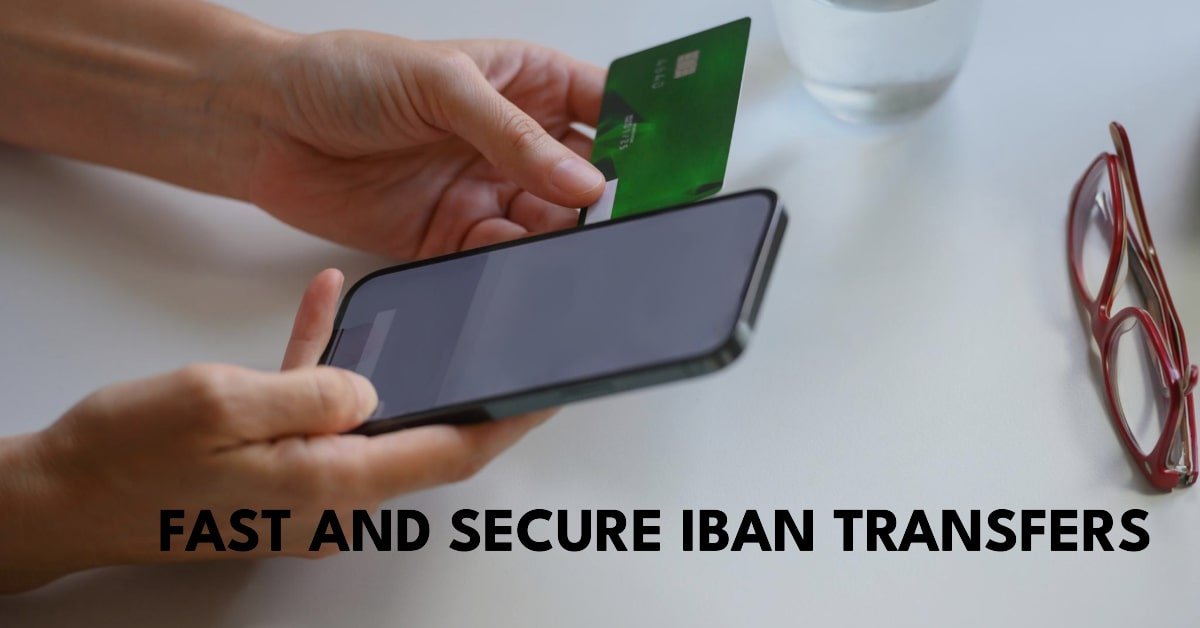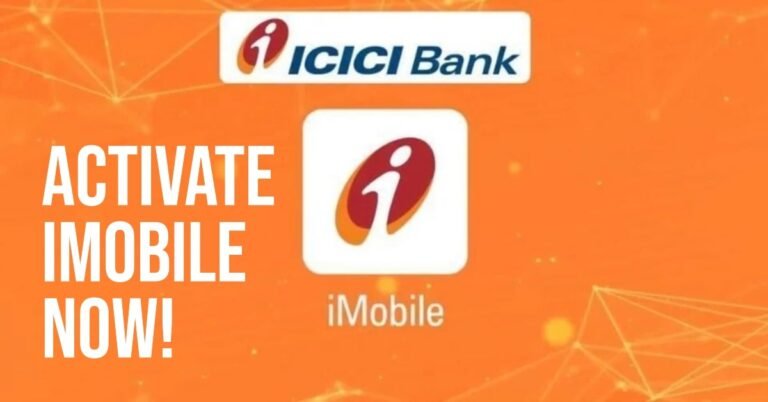How Long Does IBAN Transfer Take? Find Out and Optimize Your Transfers!
Hey there, fellow tech and finance aficionados! I’m Oladepo Babatunde Olaide, and as someone who’s dabbled in international transactions, I know the burning question that often arises: How long does IBAN transfer take? If you’ve ever sent or received money across borders, you’ve probably encountered IBANs. They’re those lengthy codes that seem to hold the key to seamless cross-border payments. But how long do these transfers actually take?
Well, fasten your seatbelts, because we’re about to embark on a deep dive into the world of IBAN transfers. By the end of this guide, you’ll be a pro at navigating the timelines, understanding the factors at play, and even discovering ways to expedite the process.
The global economy is more interconnected than ever, and with that comes the need for swift and secure international money transfers. Whether you’re a globetrotting entrepreneur, a freelance creative working with clients abroad, or simply someone sending money to loved ones overseas, understanding the ins and outs of IBAN transfers is essential. So, let’s get started on demystifying these cross-border transactions!
What is an IBAN Transfer, Anyway?
Before we delve into the timelines, let’s quickly recap what an IBAN transfer is. IBAN stands for International Bank Account Number. It’s a standardized format used to identify bank accounts across different countries. Think of it as a global address for your bank account, enabling smooth cross-border payments.
IBANs are typically made up of a country code, bank code, branch code, and account number. This standardized format helps prevent errors and ensures that your money reaches the right destination.
Difference Between IBAN and SWIFT Codes
While IBAN identifies the specific account for international transactions, SWIFT (Society for Worldwide Interbank Financial Telecommunication) codes identify the bank itself. Think of the SWIFT code as the bank’s address and the IBAN as the specific room number.
Why Should You Care About Transfer Times?
Understanding the time it takes for an IBAN transfer to go through is crucial for several reasons:
- Financial Planning: Whether you’re paying invoices or receiving payments, knowing the expected arrival time helps you manage your finances effectively.
- Cash Flow: For businesses, timely payments are essential for maintaining healthy cash flow.
- Peace of Mind: Knowing when to expect your money can save you from unnecessary stress and uncertainty.
Now that we’ve covered the basics, let’s jump into the million-dollar question:
How Long Does IBAN Transfer Take?
The standard timeframe for an IBAN transfer is typically 1 to 5 working days. However, it’s important to note that this is just an estimated range, and the actual duration can vary depending on several factors.
Here’s a quick overview of the average transfer times you can expect:
- Within the SEPA Zone: If you’re transferring money within the Single Euro Payments Area (SEPA), which includes most European countries, the transfer is often completed within 1-2 business days.
- Outside the SEPA Zone: For transfers to countries outside the SEPA zone, it can take anywhere from 3-5 business days, or even longer in some cases.
How Long Does It Take to Transfer Money Between Banks Internationally?
International transfers generally take 1 to 5 business days, depending on the countries and banks involved. For instance, transferring money from the US to Europe typically takes around 2-3 business days if initiated before the bank’s cut-off time.
How Long Does IBAN Transfer Take to a Bank Account?
Transfers to bank accounts using IBAN usually follow the 1-5 business day rule. However, if you’re transferring between countries with strong banking ties (e.g., within the EU), it can be quicker.
How Long Does IBAN Transfer Take From the USA?
When sending money from the USA to a country using IBAN, expect the transfer to take around 2-5 business days. The exact time depends on factors like the banks involved and whether currency conversion is necessary.
How Long Does a SWIFT Transfer Take Internationally?
SWIFT transfers, which often use IBANs, also typically take 1-5 business days. The process involves more steps than domestic transfers, including passing through SWIFT’s network of banks.
How Long Does IBAN Transfer Take Nationwide?
For transfers within the same country using IBAN, the time can be shorter, often 1-2 business days. This is especially true if both banks are part of the same network or banking group.
How Long Does IBAN Transfer Take with Barclays?
Barclays, like many major banks, usually processes international transfers within 1-3 business days. This can vary based on the destination country and currency.
How Long Does an IBAN Transfer Take with Revolut?
Revolut offers competitive transfer times, typically within 1-2 business days for major currencies and destinations. They often use faster, lower-cost methods to expedite transfers.
But why the variation? Let’s break down the factors that influence IBAN transfer times.
Factors Affecting IBAN Transfer Times
Several factors can influence the time it takes for an IBAN transfer to reach its destination:
- Bank Processing Times: Different banks have varying processing times and cut-off times for international transfers. Some banks might process transfers quickly, while others might take longer.
- Currency Conversion: If your transfer involves converting currencies, this can add an extra day or two to the processing time. The exchange rate fluctuations and the involvement of intermediary banks can also play a role.
- Bank Holidays and Weekends: If your transfer is initiated before a weekend or a bank holiday, it might not be processed until the next working day, adding to the overall duration.
- Incorrect Payment Details: Even a minor error in the recipient’s IBAN or other details can cause significant delays. Double-check all information before confirming the transfer.
- Fraud Prevention Measures: Banks have security measures in place to prevent fraud, and these checks can sometimes extend the processing time.
- Time Zones: If you’re sending money to a country in a different time zone, the transfer might be processed during their working hours, which could affect the arrival time.
How to Speed Up IBAN Transfers
While IBAN transfers generally take a few business days, there are steps you can take to potentially expedite the process:
- Accurate Recipient Details: Double, triple check that you’ve entered the correct IBAN, SWIFT/BIC code, and recipient name. A single typo can lead to delays or even failed transfers.
- Time Your Transfer: Initiate your transfer early in the working day to allow enough time for your bank to process it before the cut-off time. Avoid sending transfers right before weekends or holidays.
- Faster Transfer Services: Consider using specialized money transfer services like Wise, Revolut, or other providers that offer faster transfer times compared to traditional banks. These services often have streamlined processes and fewer intermediaries, leading to quicker deliveries.
Common Issues and How to Avoid Them
IBAN transfers can sometimes hit a snag. Here are a few common issues and how to avoid them:
- Recipient Detail Errors: Always double-check all recipient information before confirming the transfer.
- Cut-off Times: Familiarize yourself with your bank’s cut-off times for international transfers. If you miss the cut-off, your transfer might not be processed until the next working day.
- Currency Issues: Whenever possible, try to send money in the recipient’s local currency to avoid additional conversion delays.
- Bank Holidays: Be mindful of bank holidays in both your country and the recipient’s country, as these can affect processing times.
FAQs: Your Burning Questions Answered
Let’s tackle some frequently asked questions about IBAN transfers:
Can IBAN transfers be instant?
While some banks and money transfer services offer instant or near-instant transfers within the same country or region, true instant IBAN transfers across borders are rare. The fastest you can typically expect is 1-2 business days for transfers within the SEPA zone.
Do bank transfers go through on weekends?
Most banks don’t process international transfers on weekends or bank holidays. If you initiate a transfer on a Friday, it might not be processed until the following Monday.
Why is my IBAN transfer taking longer than expected?
Several factors can cause delays, including bank processing times, currency conversion, incorrect recipient details, or fraud prevention measures.
Why do IBAN transfers take so long?
The time it takes for an IBAN transfer to clear can depend on several factors, including the banks involved, the countries involved, and the currency being transferred.
How do I track my IBAN transfer?
You can usually track your IBAN transfer through your online banking platform or by contacting your bank’s customer service. Most banks provide a reference number that you can use to track the progress of your transfer.
How long does a local IBAN transfer take?
Local IBAN transfers, which are transfers between accounts in the same country, are usually processed much faster than international IBAN transfers. In many cases, local IBAN transfers can be completed within a few hours or even instantly.
Why do international wire transfers take so long?
International wire transfers often take longer than domestic transfers because they involve multiple banks and may require currency conversions. Additionally, international wire transfers may be subject to additional security checks and regulations.
What is the longest an international bank transfer can take?
The longest an international bank transfer can take varies depending on the specific circumstances of the transfer, such as the banks involved, the countries involved, and any issues that may arise during the process. However, in most cases, international bank transfers should be completed within 5-7 business days.
Conclusion
There you have it, folks! A comprehensive guide to IBAN transfer times. Remember, while the standard timeframe is 1-5 working days, several factors can influence the actual duration. By understanding these factors and taking proactive steps, you can ensure smoother and faster cross-border payments.
So, the next time you’re sending or receiving money internationally, keep these tips in mind and navigate the world of IBAN transfers like a seasoned pro! If you have any more questions, feel free to drop a comment below, and I’ll do my best to help you out.
Happy transferring!
P.S. For more insights on tech and finance, don’t forget to check out the rest of the articles on TechFinanceGuide.com. We’re here to empower you with the knowledge you need to thrive in the digital age.
Oladepo Babatunde is the founder of TechFinanceGuide.com and a seasoned technology professional specializing in the dynamic intersection of technology and finance. As a Computer Science graduate (HND) with over a decade of hands-on experience in the tech sector since 2011, he combines deep technical knowledge with a passion for financial innovation.
Oladepo’s mission at TechFinanceGuide is to bridge the gap between powerful financial technology and the everyday user. He is committed to delivering well-researched, actionable content that empowers readers to make informed financial decisions, navigate digital payment systems safely, and understand the trends shaping our future. From blockchain and investment tools to cybersecurity and mobile banking, his articles provide clear guidance in an ever-evolving landscape.
Beyond writing, Oladepo remains a dedicated analyst of the tech landscape, constantly evaluating the breakthroughs that reshape global finance. Connect with him on LinkedIn for in-depth discussions and insights on leveraging technology in the world of finance.






